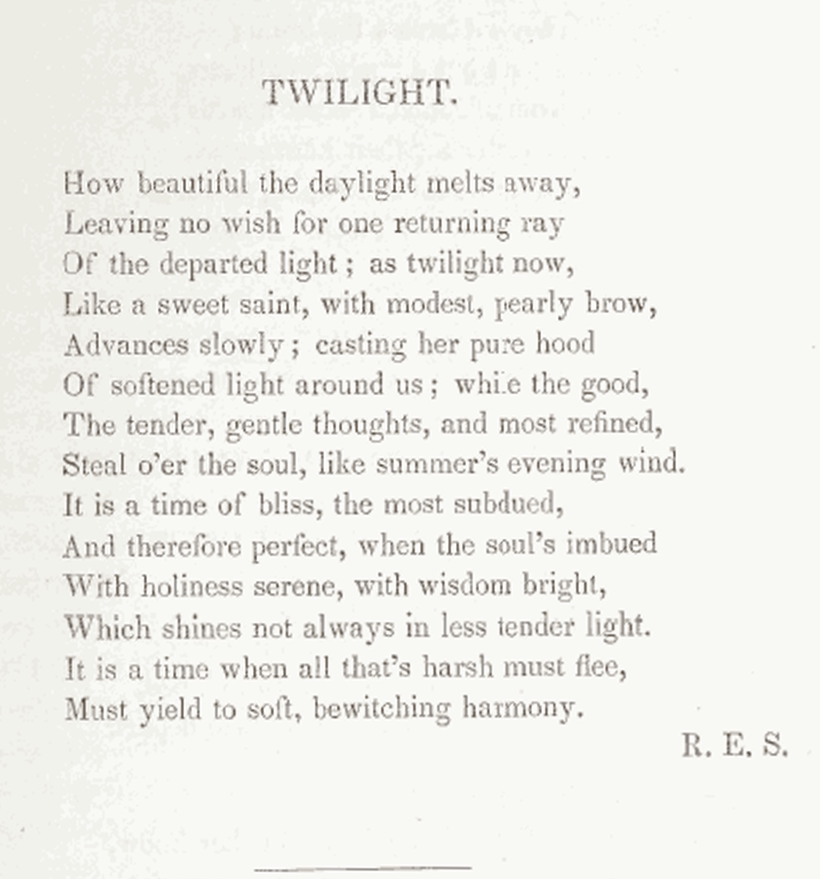Contributor(s): Shared on: 2 August 2017 under the Creative Commons Zero (CC 0) Universal license a Public Domain dedication Categories: Tags: | Contribute a translation | Source (English) |
|---|
|
TWILIGHT | |
How beautiful the daylight melts away,
Leaving no wish for one returning ray
Of the departed light; as twilight now,
Like a sweet saint, with modest, pearly brow,
Advances slowly; casting her pure hood
Of softened light around us; while the good,
The tender, gentle thoughts, and most refined,
Steal o’er the soul, like summer’s evening wind. | |
It is a time of bliss, the most subdued,
And therefore perfect, then the soul’s imbued
With holiness serene, with wisdom bright,
Which shines not always in less tender light. | |
It is a time when all that’s harsh must flee,
Must yield to soft, bewitching harmony. |
The poem, “Twilight” by Rosa Emma Salaman, was first published in the Occident 7:5, Ab 5609/August 1849, p.245. Source
Rosa Emma Collins née Salaman (1815-1898), was a poet and translator of Hebrew and German. Poems, published in 1853, was reportedly the only book accepted by Queen Victoria in the year of mourning following Prince Albert's death in 1861. In the United States, her poetry appeared in Isaac Leeser's Occident and American Jewish Advocate. The daughter of Simeon Kensington Salaman (b.1789) and Alice Cowan, Rosa Emma was one of fourteen siblings in a large and literary Jewish family in London, part of the Spanish and Portuguese Jewish community. Two sisters, Kate Salaman and Julia Goodman, were painters -- the former of miniatures and the latter, a prolific portraitist. Her brother, Charles Kensington Salaman, was a British composer and pianist. Her husband, Judah Julius Collins, was a warden of the Western Marble Arch Synagogue in London's West End, and purported to be a descendant of the Baal Shem of London. Their son, Edwin Collins, was a Jewish educator. Aharon Varady (M.A.J.Ed./JTSA Davidson) is a volunteer transcriber for the Open Siddur Project. If you find any mistakes in his transcriptions, please let him know. Shgiyot mi yavin; Ministarot naqeni שְׁגִיאוֹת מִי־יָבִין; מִנִּסְתָּרוֹת נַקֵּנִי "Who can know all one's flaws? From hidden errors, correct me" (Psalms 19:13). If you'd like to directly support his work, please consider donating via his Patreon account. (Varady also translates prayers and contributes his own original work besides serving as the primary shammes of the Open Siddur Project and its website, opensiddur.org.) Read a comment / Leave a comment (moderated) Works of related interest: |












Leave a Reply